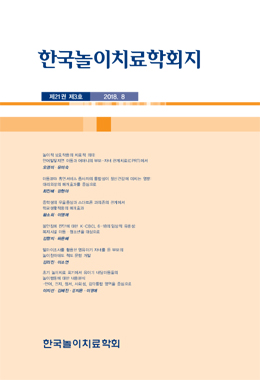본 연구의 목적은 심리장애 아동·청소년의 진단 변별력에 대한 K-CBCL 6-18의 DSM 진단 척도의 임상적 유용성을 검증하고자 하였다. 이를 위해 2013~2017년까지 아동복지시설 치료·재활 지원 시범 사업에서 DSM-IV에 의해 불안장애, ADHD, 품행장애 진단을 받은 초등 및 중·고등학생(남: 262, 여: 144)을 대상으로 K-CBCL DSM 진단 척도에 대한 판별분석과 ROC 분석을 실시하였다. 연구 결과, DSM 정서문제(67.7%)와 DSM ADHD(58.1%)의 분류정확도가 유의미하였고, DSM 정서문제의 변별력이 가장 높았다. 임상 진단 절단점의 경우, DSM 정서문제는 65T, DSM ADHD는 68T를 적용할 때 민감도와 특이도가 가장 높은 것으로 나타났다. 임상 진단군의 아동·청소년을 대상으로 K-CBCL 6-18의 DSM 진단 척도에 대한 포괄적인 변별력을 규명하였다.
The purpose of this study was screen the clinical utility of DSM diagnostic measure of K-CBCL 6-18 to discriminate psychological disorder of children and adolescents. Discriminant analysis and ROC analysis on CBCL DSM diagnostic measure were done for elementary, middle·high school children and adolescents(male: 262, female: 144) diagnosed as anxiety disorder, ADHD, conduct disorder by DSM-IV in ‘Child-welfare institution psychotherapy·rehabilitation support program’ from 2013 to 2017. As a result of the research, classification accuracy of DSM emotional problems(67.7%) and DSM ADHD(58.1%) was significant, and the discriminating ability of DSM emotional problems was the highest. The clinical cut-off point for DSM emotional problems was 65T, DSM ADHD was 68T to have highest sensitivity and specificity. The comprehensive discriminating ability was found on DSM diagnostic measure of K-CBCL 6-18 for children and adolescents in clinically diagnosed group.




